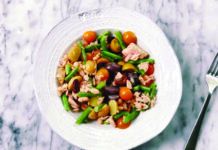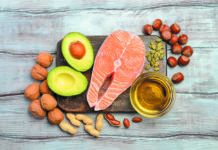A large study in China found that people with a penchant for spicier foods preferred less salt, which was associated with less salt and sodium consumed overall and lower blood pressures, according to a study in Hypertension.
“One approach currently recommended to reduce salt intake is to substitute herbs and spices,” says Alice H. Lichtenstein, director of Tuft’s HNRCA Cardiovascular Nutrition Laboratory
and executive editor of Tufts Health & Nutrition Letter. “This preliminary report of an association between spiciness of food and salt intake is another approach in a similar vein.”
In the study, Chinese researchers recruited 606 people age 18 to 65 and did a taste test with small samples of water containing different amounts of capsaicin (the essence of hot peppers) and salt to determine which participants had relatively higher or lower preferences for spicy or salty tastes.
The researchers administered a questionnaire to find out how often participants ate spicy foods common in China. In addition, they also measured their blood pressure and 24-hour sodium urinary excretion, the most accurate way to measure sodium intake. Their analysis revealed that the more people preferred spicy foods, the lower their sodium intake and the lower their blood pressure.
The taste tests and blood pressure and sodium measurements imply (but do not prove) that people who eat relatively spicy foods prefer less salt to satisfy their tastes—and vice versa.
Researchers further explored the connection using functional brain scanning. They scanned the brains of 60 volunteers, measuring activity in two regions of the brain involved in salt perception. The participants tasted salty water at two concentrations, with and without a bit of capsaicin—though not enough to cause a burning sensation on the tongue.
People who got capsaicin also preferred the less-salty water. In addition, the two brain regions associated with salt taste preferences were not as active when participants were given salty water with capsaicin, compared with people who just got salty water.
What does it mean? The findings point to the possibility that spicing up one’s food could reduce sodium intake, resulting in lower blood pressure. But that’s a big jump from these preliminary findings. The study is a brief snapshot in time, but repeating the tests with larger groups of people over a longer time could buttress the findings.
In the meantime, it’s reasonable to add herbs and spices to your food—and use less salt—to make meals both flavorful and healthy. “What works for one person does not always work for another,” Lichtenstein says. “Using herbs and spices and cranking up the spiciness of foods is one potential approach to reduce salt intake. For those who find it appealing, there does not appear to be compelling reasons not to try it.”






















